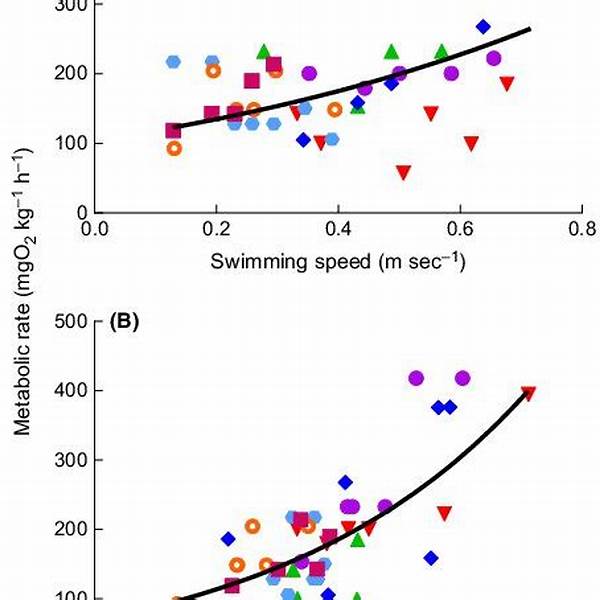The Relationship Between Metabolism And Speed

Are you ready to embark on a fast-paced journey that delves into the intricate dance between metabolism and speed? Ever wondered why some athletes seem to defy the limits of human capability, zipping past their opponents with what seems like limitless energy? Or how certain animals sprint across landscapes in seconds? The secret lies within the fascinating interplay of metabolism and speed. Buckle up, because we’re about to accelerate into an exciting world where science, curiosity, and human potential collide in a thrilling narrative that’s not just informative, but will leave you yearning to tune your own metabolic engine!
Read More : Latest Motogp Breaking News Via Sky Sports News
Imagine a world where you could effortlessly outrun your bus, catch up with friends during a morning jog, or compete in a marathon with ease. This isn’t just a dream concocted by fitness advertisements or viral internet challenges, but a concept rooted in the science of metabolism and its profound impact on our ability to move. So whether you’re a fitness enthusiast, a lover of science, or simply someone looking to optimize your daily routine, understanding the relationship between metabolism and speed is a must. Let’s dive into this biologically-powered phenomenon with a curious mind and a dash of humor!
Understanding Metabolism: The Fuel for Motion
Metabolism is the body’s biochemical engine, a complex network of processes that convert the food we eat into the energy that powers every cell, tissue, and organ. It’s the metabolic reactions that sustain life, allowing us to grow, reproduce, repair damage, and respond to environmental changes. But what about speed? How fast you move doesn’t merely depend on muscle strength—it’s directly related to how efficiently your body converts energy.
The Science Behind Speed
Speed is a function of biomechanical efficiency and energy availability. While strong muscles propel you forward, it’s the metabolic pathways that sustain this motion, providing the necessary ATP (adenosine triphosphate) to fuel muscles. High-speed animals, like cheetahs, have evolved metabolisms that allow rapid burst energy use, optimizing the ATP supply for fast-twitch muscle fibers. Comparatively, marathon runners have fine-tuned their metabolisms for endurance, slowly releasing energy for prolonged activity.
Factors Influencing Metabolic Rates
But why do some people naturally seem quicker than others? Metabolic rates can vary significantly due to genetic factors, fitness levels, and even diet. An efficient metabolism ensures that energy production is seamlessly aligned with energy demands, fostering enhanced speed and endurance. Regular physical training, balanced nutrition, and adequate rest can optimize metabolic functions and, subsequently, speed.
From Theory to Practice: Maximizing Performance
Setting new personal bests or achieving athletic goals isn’t just for elite athletes. By understanding the relationship between metabolism and speed, anyone can implement strategies that leverage this connection.
Training for Speed
Combining aerobic and anaerobic exercises can enhance metabolic function and muscle efficiency, leading to better speed. High-intensity interval training (HIIT) is particularly effective, as it stimulates both energy production systems, offering a balanced approach to improve overall performance.
Nutrition: Fueling the Metabolic Engine
Just as importantly, eating the right foods ensures your metabolism operates at peak efficiency. Carbohydrates provide quick energy, proteins are vital for muscle repair, and healthy fats are crucial for sustained energy release.
Rest: The Unsung Hero
Rest and recovery are equally essential in optimizing metabolism and achieving speed. Adequate sleep and rest days allow metabolic processes to regenerate and improve, reducing the risk of burnout and injury.
Read More : How To Choose Tires For Cyclists
Detailed Insights: The Nexus of Metabolism and Speed
Understanding the intricate details of the relationship between metabolism and speed can translate into actionable steps for anyone aiming to boost performance. Here’s how it plays out:
Points to Remember About Metabolism and Speed
Understanding metabolism’s role in contributing to speed is crucial for performance enhancement:
Insights from Athletes
Professional athletes often espouse the importance of understanding their metabolisms to boost performance, advocating a focus on personalized diet and training regimes.
The Compelling Summary
Ultimately, the relationship between metabolism and speed is a complex interplay of biology, training, and lifestyle choices. By understanding the key drivers of metabolic function, anyone can tweak their habits to unlock newfound speed, whether on the track, in everyday life, or at the cellular level where it all begins.
In conclusion, by harnessing the principles of metabolism and speed, we can propel ourselves to new heights. It is a symbiotic relationship that empowers performance, underscoring the philosophy that with the right fuel, the journey is limitless. So why wait? Dive into your own metabolic potential and discover how fast you can really go!



